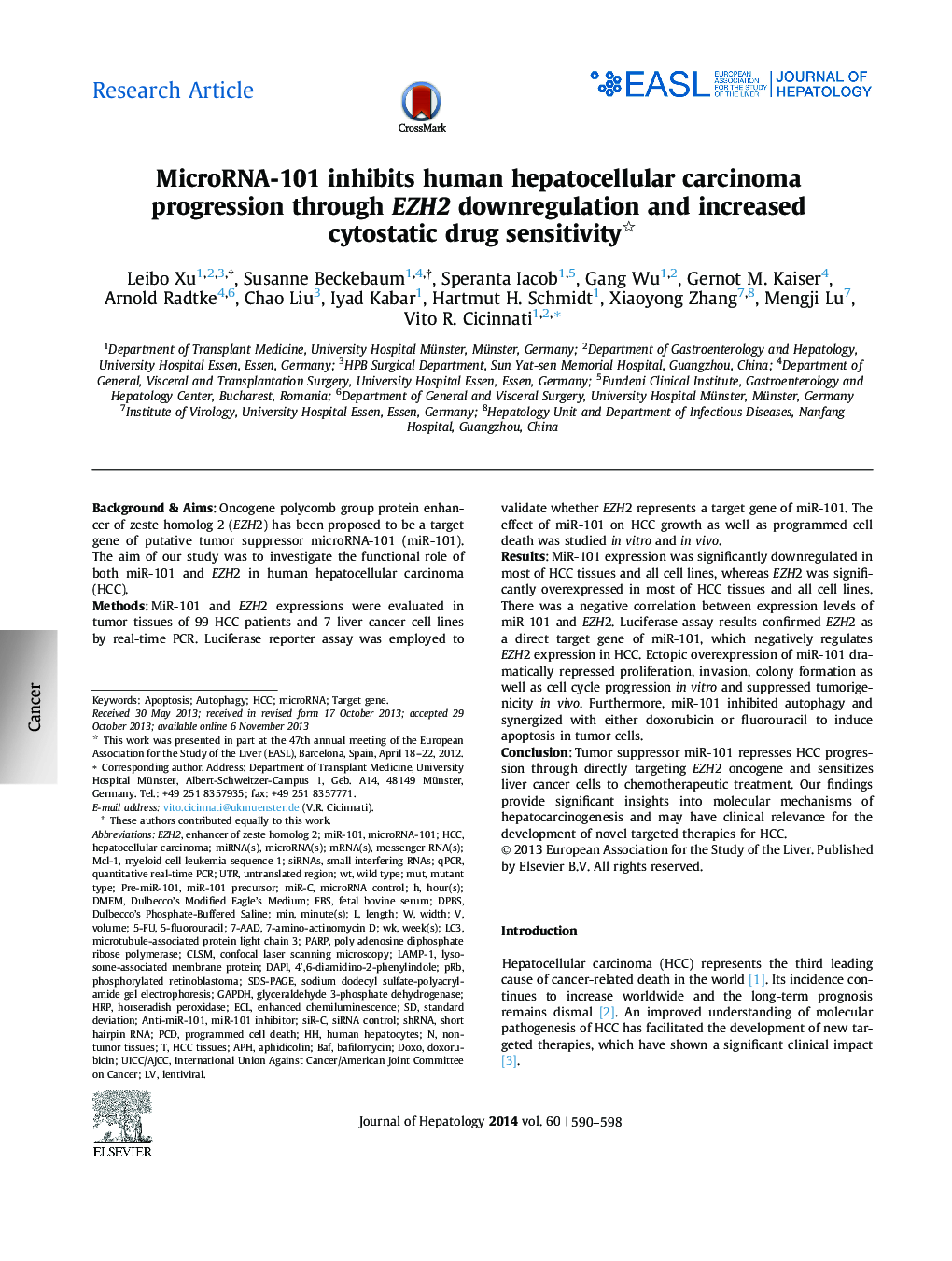| Article ID | Journal | Published Year | Pages | File Type |
|---|---|---|---|---|
| 6104221 | Journal of Hepatology | 2014 | 9 Pages |
Background & AimsOncogene polycomb group protein enhancer of zeste homolog 2 (EZH2) has been proposed to be a target gene of putative tumor suppressor microRNA-101 (miR-101). The aim of our study was to investigate the functional role of both miR-101 and EZH2 in human hepatocellular carcinoma (HCC).MethodsMiR-101 and EZH2 expressions were evaluated in tumor tissues of 99 HCC patients and 7 liver cancer cell lines by real-time PCR. Luciferase reporter assay was employed to validate whether EZH2 represents a target gene of miR-101. The effect of miR-101 on HCC growth as well as programmed cell death was studied in vitro and in vivo.ResultsMiR-101 expression was significantly downregulated in most of HCC tissues and all cell lines, whereas EZH2 was significantly overexpressed in most of HCC tissues and all cell lines. There was a negative correlation between expression levels of miR-101 and EZH2. Luciferase assay results confirmed EZH2 as a direct target gene of miR-101, which negatively regulates EZH2 expression in HCC. Ectopic overexpression of miR-101 dramatically repressed proliferation, invasion, colony formation as well as cell cycle progression in vitro and suppressed tumorigenicity in vivo. Furthermore, miR-101 inhibited autophagy and synergized with either doxorubicin or fluorouracil to induce apoptosis in tumor cells.ConclusionTumor suppressor miR-101 represses HCC progression through directly targeting EZH2 oncogene and sensitizes liver cancer cells to chemotherapeutic treatment. Our findings provide significant insights into molecular mechanisms of hepatocarcinogenesis and may have clinical relevance for the development of novel targeted therapies for HCC.
